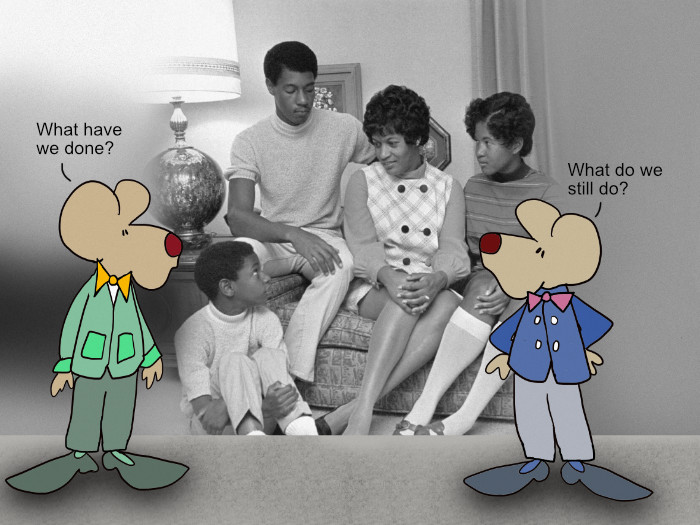The movie came out in 1996. Ghosts of the Mississippi. I am pretty sure that is the first time I had ever heard of Medgar Evers. I’m sorry to say this is true about me. I would have been 32 years old.
I’m thinking about this because two years before that movie coming out, on this same date, February 5, 1994, a white supremacist named Byron De La Beckwith was convicted of the murder of Medgar Evers.
By now, most of us know who Evers is — the African American civil rights leader Medgar Evers.
The night he died, Medgar was returning to his home just after midnight on June 12, 1963. He had been attending a series of NAACP functions.
He drove up to his house, parked his car, and headed up the walk to go inside. As he left his car with a handful of t-shirts that read “Jim Crow Must Go,” he was shot in the back.
His wife and children had been waiting up for him. They heard the noise, rushed outside, and found him bleeding to death on the doorstep. Evers died fifty minutes later at the hospital.
Medgar Wiley Evers was a good man, through and through. He was born July 2, 1925, near Decatur, Mississippi. A man from the Deep South. Medgar believed in America, I think. He served in the U.S. Army during World War II.
But then, once he got home from the war, he began to experience discrimination once again at his home in the South. Things like no lunch counters for blacks, separate toilets for blacks, and more.
Evers graduated from Alcorn College in 1952. From there, he began organizing local chapters of the NAACP. He wanted to go to law school, but the then-segregated University of Mississippi Law School would not let him in. So he continued his work to end segregation.
As a result of his work, Evers received numerous death threats, and several attempts were made on his life before he was murdered in 1963 at the age of 37.
The man who finally killed him, Byron De La Beckwith, was a white supremacist. But his daytime job was as a fertilizer salesman. It figures. He sold glorified shit for a living.
Besides all of that, he was an avid Ku Klux Klan member. Beckwith was prosecuted for murder in 1964. But he was being tried in the deep white South. During the first trial, an all-white (and all-male) jury deadlocked and would not convict him.
A second trial held in the same year resulted in a hung jury. The matter was dropped when it appeared that a conviction would be impossible. His wife, Myrlie Evers, refused to give up. I should add that Merle Evers would become the first woman to chair the NAACP. Anyway, she convinced authorities to re-open the case. In 1989, documents showed that jurors in the case were illegally screened.
Prosecutor Bobby DeLaughter worked with Myrlie Evers to move forward with yet another prosecution of Beckwith. It took four years to get to trial.
At the third trial, they produced a riflescope from the murder weapon. It had Beckwith’s fingerprints on it. In addition, they called new witnesses who testified that Beckwith had bragged about killing Medgar Evers.
Justice finally came. Beckwith was convicted and given a life sentence by a racially diverse jury in 1994. He died in prison in 2001 at the age of 80.
So many have been harmed or killed because of racial differences. Not only in our country but in our world. It is our job to realize this atrocity and be personally proactive. Perhaps we don’t all pick up our protest signs and march. But maybe we should consider speaking and acting in ways that demonstrate to others that we believe in the equality of the human race.
The human race — inclusive of all humans.
I am grateful to the people who have gone before me in doing this.
=====
The earth is the mother of all people, and all people should have equal rights upon it.
— Chief Joseph
=====
I never doubted that equal rights was the right direction. Most reforms, most problems are complicated. But to me there is nothing complicated about ordinary equality.
— Alice Paul
=====
It is impossible to struggle for civil rights, equal rights for blacks, without including whites. Because equal rights, fair play, justice, are all like the air: we all have it, or none of us has it. That is the truth of it.
— Maya Angelou
=====
Evers. Forever with the message of human rights.
